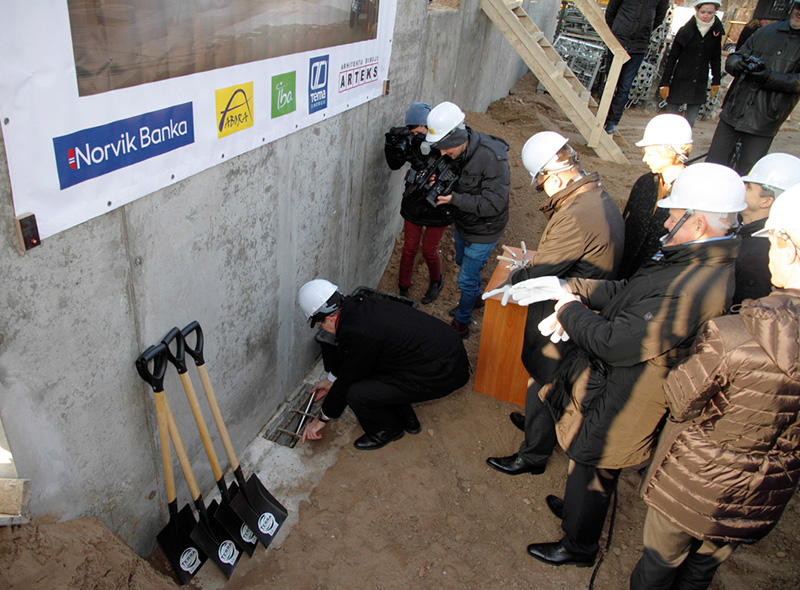RSU contributes to building most advanced cancer diagnostics centre in the Baltics
Construction of a modern medical centre has been recently launched in Rīga. The centre will allow for an accurate diagnosis of cancer and heart diseases at an early stage of development. This will be the most modern centre of its kind in the Baltic region, equipped with the most advanced nuclear medicine technology. The centre is aimed at cancer and heart disease diagnosis as well as the production and export of materials necessary for diagnostics at other medical centres.

Norvik Bank, Medical Centre NMC and Rīga Stradiņš University have agreed on the funding of the project. A total of 10 million euros will be invested in the project; up to 4 million euros will be financed by the bank, and 5.7 million euros by ERDF.
Accurate and timely diagnosis of cancer is an important issue in all of the Baltic countries, as well as in Belarus (in total this applies to around 16 million people). According to data provided by the CSP Disease Prevention and Control Centre, mortality from oncological diseases in Latvia has been slowly but consistently increasing – from 18.4 % in 2006 to 20.9 % in 2011. Mortality from cardiovascular diseases ranges from 53.2 to 54.9 % of the total number of deaths.
Since nuclear medicine is not currently used in cancer diagnostics in Latvia, cancer risks are diagnosed inaccurately or very late. The new method will use short-lived (approximately 15-110 minutes) radionuclides in diagnosis. The patient will be examined in a new type of tomography (positron emission tomography, or PET) combined with computer tomography. The result is a more accurate test result, as the disease can be identified in its early stages, also allowing for a scan of the patient’s entire body, rather than an individual part.
The new Medical Centre NMC will focus on both Latvian and foreign patients, and it will synthesise scientific projects and export the new drugs necessary for studying radionuclides (radio-isotopes) to Vilnius, Kaunas, Vitebsk, Minsk, Tallinn and Tartu. PET diagnosis may be performed in these cities, but since isotopes are not being produced there, they have to be imported from Germany or Finland. Currently a production of 5000 doses per year is planned. The Centre will also develop its medical tourism, as patients from neighbouring countries will be able to undergo an examination. The price will be 30 to 40 per cent lower than in a similar centre in Finland. The Centre will be able to service 3000 examinations per year.
Rīga's new medical centre will be located at 19a Mārupes Street. Currently, the first phase of the construction has been launched, and the Centre will open in the summer of 2015; however, clinical research and patient examinations will begin in January 2016.
Related news
 RSU continues developing good governance and implementing modern data analytics ecosystem Microsoft FabricDevelopment
RSU continues developing good governance and implementing modern data analytics ecosystem Microsoft FabricDevelopment


